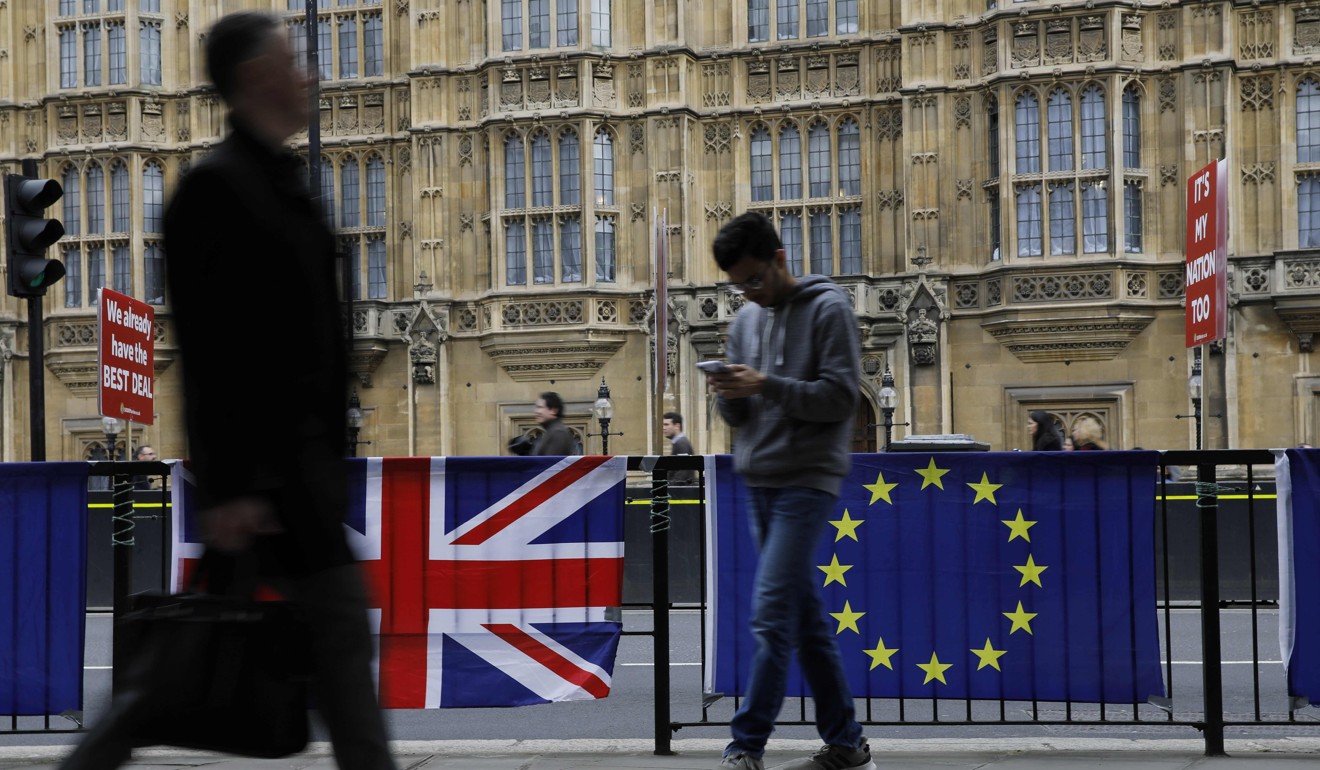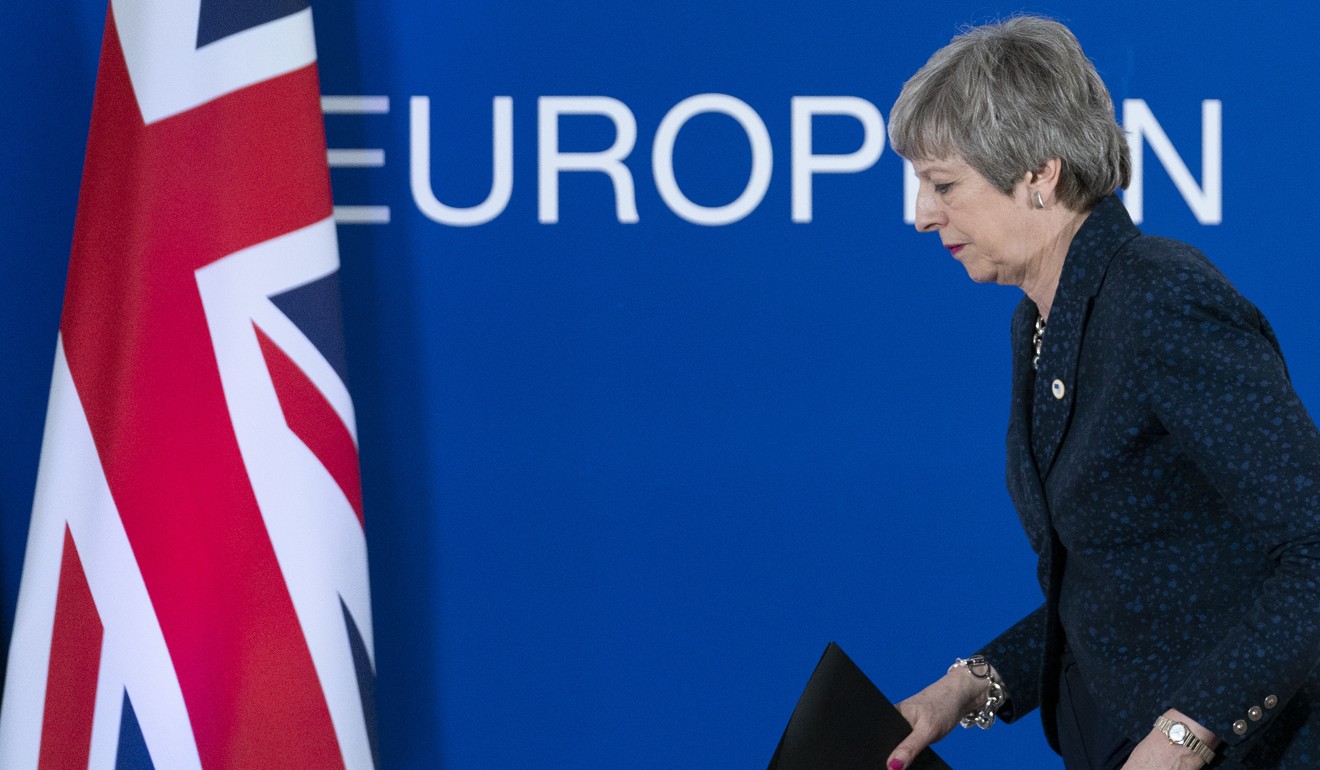
Chinese ambassador issues veiled warning to Britain against engaging in ‘gunboat diplomacy’
- Article by Liu Xiaoming in The Daily Telegraph says countries should not use freedom of navigation as excuse to flex their military muscle
- Commentary comes after British Defence Minister Gavin Williamson said last month that navy would send aircraft carrier to the Pacific to challenge China

An article written by China’s ambassador to Britain about Western nations’ use of “gunboat diplomacy” should serve as a warning to London regarding its diplomatic strategy towards Beijing as it prepares to leave the European Union, analysts said.
Titled “‘Gunboat diplomacy’ does not promote peace”, the commentary by Liu Xiaoming was published on Wednesday by The Daily Telegraph and came after British Defence Minister Gavin Williamson said last month that Britain planned to send its new aircraft carrier to the Pacific once it had been commissioned.
“Asserting their nation’s right to freedom of navigation has long been an excuse for certain Western politicians to flex their military muscle by sending naval vessels to the South China Sea,” Liu said in the article, without naming any specific countries.
“These moves flagrantly infringe upon China’s sovereignty and maritime rights, deliberately drive a wedge between China and its neighbours, and exacerbate regional tensions,” he said.

“If these acts of gunboat diplomacy, motivated by a cold war mentality, are not deliberate attempts to stir up trouble then I don’t know what is. The world must say no to these hegemonic actions,” he said, adding that some countries had deliberately sent warships close to or even into Chinese territorial waters.
While the piece neither mentioned Williamson’s comments nor criticised Britain, it ended with comments related to the island nation’s future diplomatic strategy.
“The UK plans to build a ‘global Britain’ after Brexit. My understanding of the word ‘global’ entails strategic thinking and a broad vision. It means active contribution to world peace and development, rather than the old-fashioned gunboat diplomacy I have heard being suggested in some quarters,” Liu said.
“As a country of vision and wisdom, the UK should be able to make a choice that can stand the test of time.”
Williamson said in his speech in February that Britain would send its new aircraft carrier HMS Queen Elizabeth to the Pacific where Beijing has been involved in a dispute over territorial claims in the South China Sea, for its first operational cruise, expected to be in 2021. He said also that Britain was prepared to use “lethal” force to deter countries that “flout international law”.
The statement drew a sharp rebuke from China’s foreign ministry, which said nations should stop taking “provocative actions” that violated Chinese sovereignty.
While Williamson’s predecessor Michael Fallon had announced the carrier’s planned voyage more than two years ago, the minister’s comments further fuelled Beijing’s anger after a British warship sailed close to islands claimed by Beijing in the South China Sea in September.
Following Williamson’s speech, the British media reported that China had cancelled planned trade talks with British Finance Minister Philip Hammond, which would have been a vital part of efforts to build Britain’s global trading links ahead of Brexit.
Downing Street has since distanced itself from the minister’s comments with a spokesman for Prime Minister Theresa May saying the carrier would visit a number of locations and that May herself would make the final decision on its route.

Cui Hongjian, a senior fellow with the China Institute of International Studies, said Liu’s article showed China wanted to send a warning to Britain while it was in a state of flux over its domestic and global strategy as a result of Brexit.
“The message Beijing sends is very clear: If you want to maintain your global influence and position after Brexit, you can expand your military budget, and you may want to strengthen the commonwealth system … but none of these actions can infringe on China’s rights,” he said.
“It is very obvious that Britain is very divided internally on how to portray the image of a ‘global Britain’ after Brexit, and China wants to make its stance very clear.”
Liu’s commentary was published the day before Chinese President Xi Jinping arrived in Italy at the start of a three-nation European tour that will also take in Monaco and France.
Xi is expected to meet German Chancellor Angela Merkel and European Commission President Jean-Claude Juncker next week in Paris as they seek “points of convergence between Europe and China”, French President Emmanuel Macron’s office said on Thursday.
Cui said that while Beijing had been angered by Williamson’s comments, Xi would still be seeking to build diplomatic and economic ties with the EU – of which Britain remains a part – during his six-day trip.
“Britain is still an EU country, for now,” he said. “China will not want other EU countries to follow the British rhetoric and therefore must send a further warning at a time of the visit.”
Steve Tsang, director of the SOAS China Institute at the University of London’s School of Oriental and African Studies, said that despite the tone and timing of Liu’s article, it was unlikely to have received much attention in the country.
“Everyone is engrossed with the constitutional crisis that is Brexit and no-one has much time or interest to pay attention to what Liu said. So, what he said will go unchallenged and not be revealed as being a bit silly in its argument and unacceptable in its implicit interference in British policy,” he said.
The only person set to gain was Liu himself, Tsang said. “Ambassador Liu can claim he has scored another win, which may even get noticed by Xi Jinping as he is travelling in Europe.”